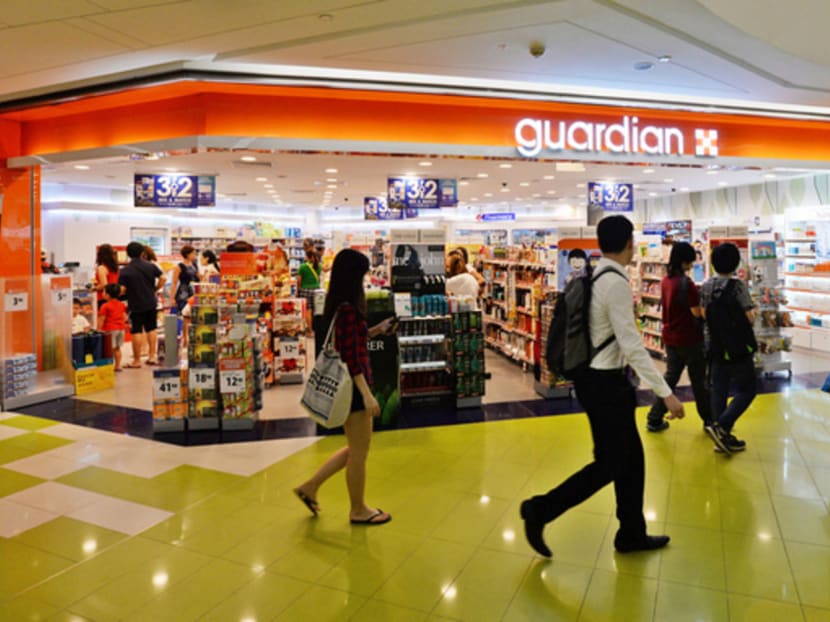Guardian’s strategy turns to fewer stores, more market share
SINGAPORE — Pharmacy major Guardian Health & Beauty is tactically revamping its business strategy in a bid to grab market share and boost revenue, as it combats high rentals and manpower shortages that have pushed it to shutter at least 10 stores over the past 18 months.

Guardian plans to push more mass-market products in its stores, placing it in competition with supermarkets. The pharmacy chain expects to close down three to four stores next year as part of its plan to minimise the impact of high rentals and manpower shortages. Photo: Robin Choo
SINGAPORE — Pharmacy major Guardian Health & Beauty is tactically revamping its business strategy in a bid to grab market share and boost revenue, as it combats high rentals and manpower shortages that have pushed it to shutter at least 10 stores over the past 18 months.
In a major change in strategy, the pharmacy is now putting a stronger emphasis on pushing mass-market products, placing it more in competition with super- and hypermarkets.
Its restructured product portfolio is now laden with mass personal care as well as mother and baby products, while international beauty brands are strategically positioned at the store front, and health products pushed inside.
“This year has been a turning point for us, our re-branding is about 70 per cent complete,” Ms Sarah Boyd, chief executive officer at Guardian Health & Beauty, told TODAY. “We are going through a major transition, a key part of which has been subtly changing what we sell and how we sell. We are now selling much more of the mass products that consumers want and need every day. We have gained through this move, taking market share not just from direct competitors, but also from super- and hypermarkets, across categories.”
Guardian, a part of Singapore-listed Dairy Farm International Holdings, was set up in 1972 as a pharmacy in Singapore. In 1981, Guardian made its first foray into beauty, opening a store that sold beauty products at Jelita Shopping Centre.
Health products, though still core to the pharmacy chain’s business model, are now being placed much further inside the store. This is because consumers, according to Ms Boyd, will generally always come to the pharmacy as a destination for healthcare products. “We have always had a strength in health. We will maintain and grow that; health is core to our strategy,” she added.
However, given the low margins associated with mass products, said Ms Boyd, the new model may at times look scary. “But then, we prefer the high customer turnaround. Earlier, it was the same type of people visiting our stores. In the last eight to nine months, we have seen exponential growth in customer count. Our basket size is growing, but not as much as the increase in the number of people coming in. It is a volume game with mass-market products,” she noted.
The pharmacy chain operates a network of 137 stores islandwide and expects to close down another three to four stores next year as part of its store rationalisation plan to minimise the impact of high rentals and manpower shortages. Until 2013, the pharmacy was on a network expansion mode before the rationalisation drive was put to action over the past 18 months. “Over and above that, salaries are expected to rise. It is getting tough to have a business that is sustainable,” said Ms Boyd.
Given the ageing population and manpower shortage in the Republic, she noted, stakeholders in the healthcare space, including hospitals, doctors’ clinics, polyclinics, pharmacists, pharmacies, as well as drug companies and also the Ministry of Health and Health Promotion Board, have started to realise that a high-street pharmacy can play a much more important role in frontline healthcare.
“It has been an agenda for quite a while, but the challenge is two-fold. Getting everyone to work together and the public-private split is difficult sometimes to reconcile,” she added.






